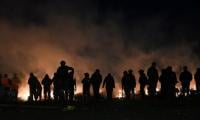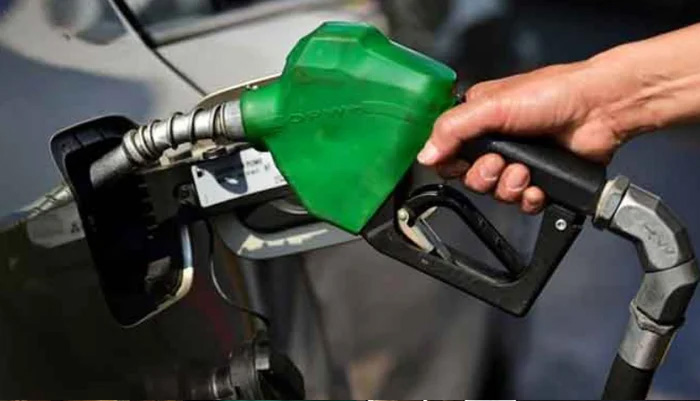‘Govt may raise petroleum levy on diesel’
KARACHI: A cut in prices of petroleum products was unlikely in the next fortnight as the difference between international and domestic rates was slight, with chances of a raise in the petroleum levy on diesel.
People from the oil sector on Wednesday said the government could raise the price of diesel to collect higher petroleum levy to meet the International Monetary Fund (IMF) demand to secure the stalled loan programme.
Estimates of the oil sector showed that on average, the price of petrol was down by Rs2/litre for the next fortnight from the existing Rs214.80/litre, whereas the average price of diesel for the next fortnight was also down, when compared with its existing price. The federal government had cut the prices of petroleum products in its last review. The price of high speed diesel was slashed by Rs7.5/litre to stand at Rs227.80/litre; although, the petroleum levy was increased to Rs30/litre to collect higher revenue on the fuel.
Rates of petrol were also brought lower by Rs10/litre to stand at Rs214.80/litre, with petroleum levy of Rs50/litre to raise the government’s revenue collection.
However, the government has not been charging sales tax on petroleum product.
Oil sector people said that considering the average price of petroleum products, there would be slight change in the price for domestic consumers as no big reduction has been seen in Free on Board (FOB) prices.
They said that price of diesel however might go up if the government increased the petroleum levy to appease IMF for the revival of its programme, for which it was striving hard to shore up the dwindling foreign exchange reserves.
The reserves held by the State Bank of Pakistan fell to $5.8 billion as per the latest data released by the central bank on Thursday.
“If the government remains in office for the rest of its tenure, it has to comply with the conditions of the IMF,” sources privy to the matter said. However, it might not increase the petroleum levy on diesel, if it was convinced that it would be sent packing in January 2023, they said.
Pointing to the recent statements made by government functionaries, they said that the government would likely meet the conditions set by the IMF to revive the stalled loan programme. Exchange losses have to be adjusted in oil prices; however, it was not necessary that the government adjusts the prices in the next fortnight.
They pointed out that domestic oil prices have now become a political issue like it did during the tenure of the Pakistan Tehreek-e-Insaf (PTI) government, when oil prices were frozen by reducing petroleum levy and sales tax to zero.
-
 'Bridgerton' Season 4: Showrunner Talks About Violet's Steamy Romance
'Bridgerton' Season 4: Showrunner Talks About Violet's Steamy Romance -
 John Tesh Recalls ‘uncomfortable’ Backlash Over ’70s Romance With Oprah Winfrey
John Tesh Recalls ‘uncomfortable’ Backlash Over ’70s Romance With Oprah Winfrey -
 Meghan Markle, Prince Harry Problem Was Not ‘work’ During Time With Royals
Meghan Markle, Prince Harry Problem Was Not ‘work’ During Time With Royals -
 Meta Strikes Multi-billion-dollar AI Chip Deal With Google: Will The New Collaboration Pay Off?
Meta Strikes Multi-billion-dollar AI Chip Deal With Google: Will The New Collaboration Pay Off? -
 Gracie Abrams Breaks Silence After Losing 2026 BRIT Award
Gracie Abrams Breaks Silence After Losing 2026 BRIT Award -
 Deon Cole Takes Swipe At Nicki Minaj In Mock Prayer During NAACP Image Awards Monologue
Deon Cole Takes Swipe At Nicki Minaj In Mock Prayer During NAACP Image Awards Monologue -
 Jennifer Garner Reveals The Actress Who 'carried Through Things'
Jennifer Garner Reveals The Actress Who 'carried Through Things' -
 Shamed Andrew ‘awful’ Time As Trade Envoy Is Laid Bare By Insider
Shamed Andrew ‘awful’ Time As Trade Envoy Is Laid Bare By Insider -
 Belgium Seizes Suspected Russian Shadow Fleet Tanker
Belgium Seizes Suspected Russian Shadow Fleet Tanker -
 Liza Minelli Makes Bombshell Claim About Late Mother Judy Garland’s Struggle With Drugs
Liza Minelli Makes Bombshell Claim About Late Mother Judy Garland’s Struggle With Drugs -
 Shipping Giant Maersk Halts Suez Canal, Bab El-Mandeb Sailings Amid Escalating Conflict
Shipping Giant Maersk Halts Suez Canal, Bab El-Mandeb Sailings Amid Escalating Conflict -
 Matthew McCoughaney Reveals One 'gift' He Achieved With Losing Nearly 50 Pounds
Matthew McCoughaney Reveals One 'gift' He Achieved With Losing Nearly 50 Pounds -
 'Scream 7' Breaks Box Office Record Of Slasher Franchise: 'We Are Grateful'
'Scream 7' Breaks Box Office Record Of Slasher Franchise: 'We Are Grateful' -
 Bolivian Military Plane Crash Death Toll Rises To 20
Bolivian Military Plane Crash Death Toll Rises To 20 -
 'Sinners' Star Blasts Major Media Company For 2026 BAFTAs Incident
'Sinners' Star Blasts Major Media Company For 2026 BAFTAs Incident -
 Inside Scooter Braun, Sydney Sweeney's Plans To Settle Down, Have A Baby
Inside Scooter Braun, Sydney Sweeney's Plans To Settle Down, Have A Baby




